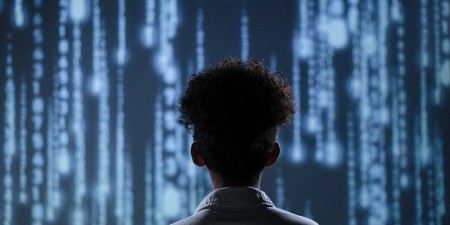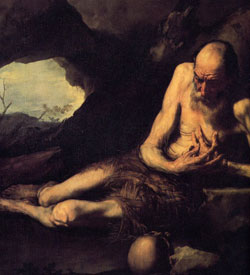We ask you, urgently: don’t scroll past this
Dear readers, Catholic Online was de-platformed by Shopify for our pro-life beliefs. They shut down our Catholic Online, Catholic Online School, Prayer Candles, and Catholic Online Learning Resources—essential faith tools serving over 1.4 million students and millions of families worldwide. Our founders, now in their 70's, just gave their entire life savings to protect this mission. But fewer than 2% of readers donate. If everyone gave just $5, the cost of a coffee, we could rebuild stronger and keep Catholic education free for all. Stand with us in faith. Thank you.Help Now >
The Papacy: the Earth's Greatest Office
FREE Catholic Classes
The Catholic Church is a supernatural superpower, rising as high as the heavens above strictly earthly institutions.
Highlights
Catholic Online (https://www.catholic.org)
9/28/2009 (1 decade ago)
Published in Europe
GLADE PARK, Colorado (Catholic Online) - John L. Allen Jr., the Vatican analyst for CNN and National Public Radio, wrote: "Forget about theology for a moment. In purely empirical, sociological terms, the Catholic Church is to religion what the United States is to geopolitics: the lone superpower, or at least the lone 'indispensable nation,' without whose involvement resolution of virtually any global crisis is difficult to imagine" (praguepost.com).
That gets the nod. The Catholic Church is indeed the lone religious superpower. Further, the Catholic Church is a supernatural superpower, rising as high as the heavens above strictly earthly institutions by virtue of the fact that she is not merely earthly. The Church has as her divine founder Jesus Christ (cf. Mt 16:17-18), the Son of the living God, whose promise to be with his Church all days is sealed in eternal, omnipotent power (Mt 28:20). By God's decree, the Church is raised on high.
That the Catholic Church has been the greatest influence for good in the world for two-thousand years is no surprise. For what other effect should result from a divinely guided institution whose head is the King of all that exists, both seen and unseen.
When we look at the history of the Church, how she began as a flicker of dim light in a pagan world of darkness, struggling forward by the efforts of uneducated fishermen, vehemently attacked in every way possible yet surviving, growing, spreading to all nations, there is nothing but the Finger of God which can be attributed to her success. Can enough praise be given the Church?
Let us address that with this: "Could adequate praise ever pass from the lips of man to give God, the giver of life and immortality, the due he so deserves in working among us through his Bride?"
That Christ founded his Catholic Church as our spiritual mother is certainly an immense gift to mankind. And, as an attribute of that gift, as a reflection of what Christ is, we find in the Church her greatest gift: Truth.
As the earthly head of the Catholic Church who feeds her faithful the words of truth sits the roman pontiff, the Vicar of Christ, upon the Chair of Peter. The most influential man of present; and, too, the most respected, whether that respect is sincere or whether it is tainted by distrust or corrupted by hate. The pope is indeed powerful. And, as with the Church herself, it is no surprise: it is quite logical: the pope is the earthly representative of Christ.
Think on that a moment: in our midst we have a man whose purpose is to represent the Son of God on earth. The influence, wonder and power of such an office, one instituted by God himself, is given to one position alone: the Bishop of Rome, sovereign leader of the earthly body of the Church.
There was a day some twenty-centuries ago when Pilate asked Christ:"Then you are a king?" Jesus answered, "You say I am a king. For this I was born and for this I came into the world, to testify to the truth. Everyone who belongs to the truth listens to my voice." Pilate said to him, "What is truth?" (Jn 18:37-38).
It is precisely in the element of truth itself that we find both the catalyst for the pope's influence as well as the urgent need of his office. Truth is to the world what medicine is to illness. Christ said, "I am the way, the truth, and the life" (Jn 14:6). As the pope represents Christ on earth there can be no effect but a constant focus of attention, an influential and magnetic pull, which sends ripples of truth's beauty across the land and sea, drawing man toward he whom the Vicar of Christ represents, in a movement into life itself.
Our society is in desperate need of this truth which flows from Christ through his Vicar. And, whether understanding the reality of his position in clarity or lacking vision of that reality due to muddiness, the vast majority of men on earth, to some degree, realize the roman pontiff represents truth. When he speaks, the world turns toward his voice, sparks fly, the internet goes abuzz, leaders take note, nations take action. Such action can take the form of dissent or backlash or spiteful words, but it is there; people are moved by the pope.
Yet apart from those who reject our Holy Father, who work away at deeds of controversy, constantly refusing to submit in obedience, there are vast numbers of others who listen to his words with love. They ponder what they find in encyclicals as if wrought from the hand of Christ; they cherish wise words of admonishment; they savor due chastisement, not ignoring or forgetting, but amending; they embrace encouragement and consolation with vigorous hope. It is as if they have found, in the Vicar of Christ, a connection to heaven itself which is immediately accessible and relevant to the world in which they live. And so it is, the appointed representative of Christ operating in his earthly, living office, speaking to the world that concept so dear to Pilate's heart, even though, perhaps, it may have passed by unnoticed.
"I am the truth," said Christ. "Listen to the Truth," says the Bishop of Rome. This truth is precisely what our ailing society needs. For, while 78 percent of Americans say they are Christian (Pew Forum), there is stupendous confusion, disagreement, dilution of doctrine, and flat out strangeness running rampant.
Further, studies show the fastest growing group of believers are those who are unaffiliated with any religion; that is, the believers of "whatever". The primary tenet of the Whatevers, religious indifferentism, has reached an all time high: it is now considered not only normal to relegate doctrine to the realm of subjectivity, but a worthy product of a wise eye turned critically upon the "old-fashioned bigotry of rigid religion".
A recent survey found that the current level of Whatevers stands at about 15 % of the total adult U.S. population. Further, 22 % of Americans aged between 18-29 years identify with this group of unaffiliated Whatevers (americanreligionsurvey-aris.org). Note, too, that if we pay close attention to the actions of our neighbors, if we listen carefully to what they say and hold dear to their hearts, we will find that this group of non-religion advocates is far larger than the above mentioned percentages.
The cure for all this unfortunate, disastrous strangeness is the fullness of truth found in the Catholic Church, represented by her leader, our Holy Father. Since to hear the truth is to listen to Christ's voice, it follows, then, that we indeed hear the truth by listening to the voice of Christ's earthly representative. One hears authority by listening to the authorized representative of that authority.
There are some, obviously, who disagree, citing claims of corruption, sin, unfortunate events in history, and a whole host of other issues. Fine, but such postulations won't get the nod. The infallible nature of the office of the papacy is distinct from a purely human office. No Catholic is naive enough to think any mere man, pope or not, is sinless. The fact that the pope is imperfect has no bearing on the authority given him by Christ to act in his official capacity, just as a police officer may act in his official capacity even though he be a sinner.
Those who view the Chair of Peter in purely human terms often make this capital error: they overlook the fact that the papacy derives its power and authority from God himself, and is guided by the Holy Spirit. What God wills is, and cannot be undone. Strictly earthly authority is to the papacy what the Supreme Court's authority is to Divine Authority.
We ought to listen to the Pope. A great deal of individual problems, some with eternal consequences, could be solved by seeing the papacy in its true light. How so?
The true purpose of our life is not arrived at by drifting along each day thinking our choices are insignificant, with little effect, except perhaps some temporary consequence of either a pleasant or unpleasant nature; we do not exist in a meaningless, insignificant position, where actions of free will are small, little things, neither here nor there. What we believe matters; for what we believe we live. Believe incorrectly and, thus, live incorrectly.
Religion is man's relation to God, the most important aspect of our lives, for the seriousness with which we seek truth will effect us for all of eternity. To take a lackadaisical approach to religion is to dismiss God; it is to ignore all that he has revealed; it is to relegate the most sublime and loving gift ever possible, the Father's gift of his only Son, into the category of the unimportant.
"I have set before you life and death, the blessing and the curse. Now choose life, so that you and your children may live" (Deut 30: 19).
Lewis Carroll once said, "If you don't know where you are going, any road will get you there." Indeed, if one knows not where they go, ambling off taking for their course any direction which presents itself, they will end up in an unsuspected place. Who would take such an insane principle as their mode of life? Who would set out to cross the sea by wading blindly into the surf?
That is precisely what a vast number are doing in adhering to religious indifferentism. Like Pilate, they may ask, "What is truth?", but the journey will not be set upon in order to hear it, listen to it, and obey it. Rather, the thirst for truth, which is hard-wired into the human intellect by the Giver of Life, is buried deep within the recesses of a soul whose lost her focus on the guiding light from on high, ever-present, ever-calling. In such a state, all the wrong, glittery objects of disordered passions get the attention, and the soul goes off seeking darkness on darkness.
Religion matters. The choice of one's religion is immensely important. The choice to become a member of the Whatevers is a grave mistake. Yet what has led so many Americans to enroll in the Whatevers' camp? One explanation is an abuse of religious freedom; for religious freedom is not the freedom to choose whatever you wish, it is the freedom which provides one the opportunity to choose wisely.
"Religious freedom does not mean religious indifferentism, nor does it imply that all religions are equal" - Pope Benedict XVI, encyclical on Caritas In Veritate
Joseph Cardinal Ratzinger gave a homily prior to the convening of the conclave in which he would be chosen to fill the Chair of Peter. With prophetic insight into the errors of a tidal wave of self-seeking individualists, soon to be pope Benedict XVI had this to say:
"How many winds of doctrine we have known in recent decades, how many ideological currents, how many ways of thinking. . . The small boat of thought of many Christians has often been tossed about by these waves - thrown from one extreme to the other: from Marxism to liberalism, even to libertinism; from collectivism to radical individualism; from atheism to a vague religious mysticism; from agnosticism to syncretism, and so forth. Every day new sects are created and what Saint Paul says about human trickery comes true, with cunning which tries to draw those into error (cf Eph 4, 14).'
"Having a clear faith, based on the Creed of the Church, is often labeled today as a fundamentalism. Whereas, relativism, which is letting oneself be tossed and "swept along by every wind of teaching," looks like the only attitude (acceptable) to today's standards. We are moving towards a dictatorship of relativism which does not recognize anything as for certain and which has as its highest goal one's own ego and one's own desires."
"What is truth?" The world may not recognize it; however, when it is spoken, those who love it notice.
-----
Author Bio: F. K. Bartels is a Catholic freelance writer who operates www.catholicpathways.com, and may be reached via email at bartels@catholicpathways.com. He is a new contributing writer for Catholic Online.
---
'Help Give every Student and Teacher FREE resources for a world-class Moral Catholic Education'
Copyright 2021 - Distributed by Catholic Online
Join the Movement
When you sign up below, you don't just join an email list - you're joining an entire movement for Free world class Catholic education.

-

-
Mysteries of the Rosary
-
St. Faustina Kowalska
-
Litany of the Blessed Virgin Mary
-
Saint of the Day for Wednesday, Oct 4th, 2023
-
Popular Saints
-
St. Francis of Assisi
-
Bible
-
Female / Women Saints
-
7 Morning Prayers you need to get your day started with God
-
Litany of the Blessed Virgin Mary
Vatican City Leads the Way in Ethical Artificial Intelligence Regulation
-

Rising from the Ashes: Southern California's Wildfire Tragedy Sparks Resilience and Hope in the ...
-

Catholic Medical Group Challenges Biden Administration Over Emergency Room Abortion Mandate
-
FDA Proposes New Front-Facing Nutrition Labels to Promote Healthier Choices
-
Introducing 'Journey with the Messiah' - A Revolutionary Way to Experience the Bible
Daily Catholic
 Daily Readings for Wednesday, January 15, 2025
Daily Readings for Wednesday, January 15, 2025 St. Paul the Hermit: Saint of the Day for Wednesday, January 15, 2025
St. Paul the Hermit: Saint of the Day for Wednesday, January 15, 2025 Prayer for a Blessing on the New Year: Prayer of the Day for Tuesday, December 31, 2024
Prayer for a Blessing on the New Year: Prayer of the Day for Tuesday, December 31, 2024- Daily Readings for Tuesday, January 14, 2025
- St. Felix of Nola: Saint of the Day for Tuesday, January 14, 2025
- St. Theresa of the Child Jesus: Prayer of the Day for Monday, December 30, 2024
![]()
Copyright 2024 Catholic Online. All materials contained on this site, whether written, audible or visual are the exclusive property of Catholic Online and are protected under U.S. and International copyright laws, © Copyright 2024 Catholic Online. Any unauthorized use, without prior written consent of Catholic Online is strictly forbidden and prohibited.
Catholic Online is a Project of Your Catholic Voice Foundation, a Not-for-Profit Corporation. Your Catholic Voice Foundation has been granted a recognition of tax exemption under Section 501(c)(3) of the Internal Revenue Code. Federal Tax Identification Number: 81-0596847. Your gift is tax-deductible as allowed by law.









 Daily Readings for Wednesday, January 15, 2025
Daily Readings for Wednesday, January 15, 2025 St. Paul the Hermit: Saint of the Day for Wednesday, January 15, 2025
St. Paul the Hermit: Saint of the Day for Wednesday, January 15, 2025 Prayer for a Blessing on the New Year: Prayer of the Day for Tuesday, December 31, 2024
Prayer for a Blessing on the New Year: Prayer of the Day for Tuesday, December 31, 2024

